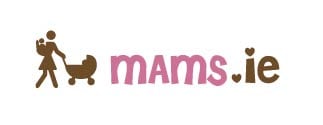Home › Forums › ASK THE EXPERT › Skincare Expert › Treating Eczema in Children
- This topic has 0 replies, 1 voice, and was last updated 9 years, 2 months ago by
Anonymous.
-
AuthorPosts
-
February 26, 2015 at 4:00 pm #17786
Anonymous
InactiveOur skincare expert, Elave has come up with information about what is eczema and how to deal with it, especially in children.
Eczema is a skin condition caused by inflammation. Atopic dermatitis is the most common of the many types of eczema. While the word ‘dermatitis’ means inflammation of the skin, ‘atopic’ refers to an allergic tendency, which is often inherited. Those with atopic eczema have a higher risk of developing other allergic conditions (such as asthma or hayfever). Typically, eczema causes skin to become itchy, red and dry – even cracked and leathery. Eczema most frequently appears on the face and extremities, but it can show up in other areas too. Eczema is a chronic problem for many people. It is most common among infants and children, many of whom outgrow it before school age.
What causes eczema?
Like asthma, eczema seems to run in families. Certain genes make some people have extra-sensitive skin, and certain environmental factors – like stress – can trigger an episode of eczema. Eczema is also triggered or aggravated by contact with irritants in common substances such as:
Woollen and synthetic fabrics
Soap and other agents that dry skin
Heat and sweat
Eczema can also be aggravated by dry skin. Since eczema may in part be an internal response to stress, any emotionally charged event – from a move to a new job – may trigger a flare-up.Medical attention for eczema
Seek urgent medical attention if your baby suddenly develops a rash along with symptoms such as difficulty breathing. Seek medical advice if:
Your baby develops a new rash
The rash looks infected, appears redder, or has a yellow crust or ooze.
Home eczema treatments aren’t helping.
Bathe your childUse lukewarm water. Hot water can make eczema worse.
Rinse your child’s skin twice to remove soap residue.
Keep baths short since prolonged contact with water can be irritating
MoisturisePut a gentle moisturiser on your baby’s skin as soon as your child is out of the bath. Reapply several times a day or with every nappy change.
Do not use any medications or medicated creams unless a doctor recommends it.
Dress your child in comfortable clothingLight, cotton fabrics may be most comfortable. Wash clothes before wearing.
Avoid heavy, tight, or scratch material such as wool, nylon, or synthetic fibres.
Prevent irritationTry to keep your child from scratching. Keeping fingernails short may help.
Avoid any known allergens.
Avoid irritants such as perfumed soaps and detergents.
Use cold compresses to relieve the itch.
Don’t let your baby get too hot or sweaty. Either can make eczema worse.
Never give a baby an antihistamine without seeking medical advice first.
Ask your doctor about medications to relieve itching and whether food or environmental allergens could be triggering the eczema. -
AuthorPosts
- You must be logged in to reply to this topic.

